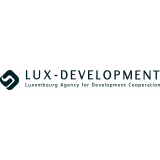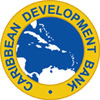
Lux-Development is the Luxembourg Agency for Development Cooperation. A private limited company (société anonyme) with its head office in Luxembourg, its shareholders are the Luxembourg state (98%) and the Société nationale des Crédits à l'Investissement (2%). Its private status makes it possible for the Agency to work in a dynamic and flexible way. Its board of directors is made up of representatives of the Luxembourg government, professional associations, unions, the federation of development NGOs, two private individuals and the Agency's managing director.
In 2008, the Agency celebrated its 30th birthday. Over the last 15 years it has experienced continuous and sustained growth. It now counts approximately 60 staff members working at the head office in Luxembourg as well as about 30 staff working at the six regional representations and on the programmes. Just under 100 professional consultants and eight interns also contribute their skills as part of the implementation of the projects and programmes in the field.
Lux-Development manages most of the resources allocated by the Luxembourg government to public development aid, within a strictly bilateral framework. In addition to this main task, the state may call upon the Agency to carry out one-off operations relating to emergency aid, other tasks within the sphere of development cooperation and any other international cooperation missions. Lux-Development also manages programmes funded by other bilateral donors and by the European Commission through mechanisms such as 'indirect centralised management' or 'facilities'.
The Agency concentrates mainly on Luxembourg development cooperation's 10 privileged partner countries, which is a list defined by the Luxembourg government primarily on the basis of the human development index (HDI) as published by the UNDP: Burkina Faso, Mali, Niger, Senegal, Cape Verde, Namibia, Laos, Vietnam, Nicaragua and El Salvador. It should be noted that six of these ten countries are in sub-Saharan Africa. Lux-Development also works with other countries receiving support from Luxembourg development cooperation: in Africa (Rwanda, Morocco and Tunisia); in the Balkans (Serbia, Kosovo, Montenegro and Albania); in Asia (Mongolia) and in South America (Ecuador). It should be noted that a policy of geographical concentration will be continued with the programmed withdrawal from the Maghreb countries, Ecuador, Namibia and El Salvador.
Taking its inspiration from the millennium development goals (MDGs), Luxembourg development cooperation focuses on three key sectors: health; education, including vocational training and job integration; and integrated local development, including various aspects such as water and sanitation, decentralisation and microfinance. Lux-Development has naturally developed these sectors, as well as three cross-cutting issues selected by Luxembourg development cooperation (gender equality, the environment and good governance) into its spheres of specialisation.
The relationship between Lux-Development and the Luxembourg state is governed by a convention, which was renewed in October 2008. This convention stipulates that in carrying out its tasks, the Agency shall abide by the political commitments made by the state at the international level, including the Paris Declaration on Aid Effectiveness, the Accra Agenda for Action, the European Consensus on Development and the European Union Code of Conduct on Complementarity and the Division of Labour in Development Policy.
Our Values
Lux-Development believes that development cooperation should be guided by respect for shared values which ought to inform both its relations with others and its own day-to-day organisation. The Agency's staff members base their commitment on the following values:
* respect for others
* integrity
* solidarity
* effectiveness
The first value refers to our wish to promote a world made up of diversity. The second value is explained in the Agency's code of conduct.
The third value affirms Lux-Development's adherence to the fundamental basis for the significant efforts made by Luxembourg in terms of official development assistance (ODA). Since 2000, Luxembourg has been one of the five industrialised nations devoting over 0.7 per cent of gross national product to development cooperation, and the aim is to reach a target of 1%.
The fourth value expresses Lux-Development's desire to continue the efforts to achieve a high level of quality that have enabled it to obtain ISO 9001:2000 certification. Lux-Development wants to continue to be seen as a committed institution that has a close relationship with its partners, and which is reliable, responsive, flexible and innovative, able to adapt to the diverse situations that it encounters. The concept of effectiveness refers to the roadmap in the Paris Declaration; this value thus encourages us to take ownership of the principles contained in that declaration.


